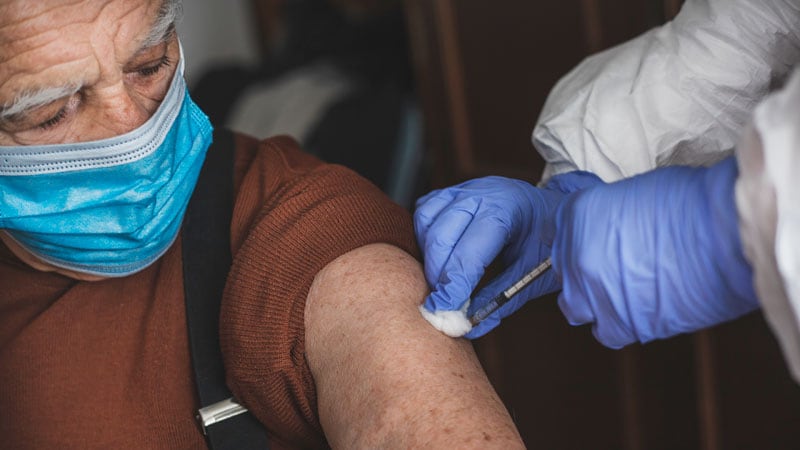CDC Panel Mulls 2nd Boosters, Booster Fatigue
Editor’s note: Find the latest COVID-19 news and guidance in Medscape’s Coronavirus Resource Center.
Federal advisers on Wednesday stressed the need for caution in decisions about second COVID-19 booster shots and heard calls from members of the public for quick clearance of initial doses of these vaccines for children younger than 5 years.
The Centers for Disease Control and Prevention (CDC) is considering what to tell the public about second booster shots with mRNA vaccinations. The US Food and Drug Administration (FDA) in March authorized a second booster dose of either the Pfizer-BioNTech or the Moderna COVID-19 vaccines for people aged 50 and older and certain immunocompromised adults, even though many top infectious disease experts questioned the need before the agency’s decision, as reported by Medscape Medical News.
The CDC asked its Advisory Committee on Immunization Practices (ACIP) to discuss second booster shots but did not ask the panel to vote on formal recommendations. Instead, the panel engaged in broad discussion about challenges for vaccination strategy that likely will arise as the pandemic persists.
ACIP member Beth Bell, MD, MPH, of the University of Washington, said she’s concerned about the potential for “booster fatigue.”
“A vaccination program that’s going to require boosting large proportions of the population every 4 to 6 months is really not sustainable and probably not something that most people want to participate in,” she said.
The incremental benefit of additional COVID-19 shots for now appears to be smaller than that gained from the initial doses, Bell said.
Earlier in the meeting, CDC staff presented estimates about how well the COVID vaccine works in different stages to prevent one case of hospitalization over 4 months among people aged 50 and older. The major gain in preventing hospitalizations occurs with the first vaccination series and then wanes, the CDC said.
It appears that one hospitalization is prevented for every 135 people who get the first round of COVID-19 vaccinations. But only one hospitalization is avoided for every 674 people who get a first booster dose. A second booster prevents one hospitalization for every 1205 people vaccinated, according to estimates presented by the CDC.
Bell said she’s concerned about considering additional doses for “smaller and smaller return and creating an impression that we don’t have a very effective vaccination program,” even though the CDC’s data show a clear benefit.
Helping Inform “Conversations”
Elisha Hall, PhD, RD, of the CDC presented slides with guidance for clinicians to discuss additional boosters with their patients. The CDC will be creating educational materials to aid in these talks, she said.
The slides listed the following factors to help determine the urgency for a second booster:
-
Having certain underlying medical conditions that increase the risk of severe COVID-19 illness
-
Being moderately or severely immunocompromised
-
Living with someone who is immunocompromised, at increased risk for severe disease, or who cannot be vaccinated because of age or contraindication
-
Being at increased risk of exposure to SARS-CoV-2, such as through occupational, institutional, or other activities (eg, travel or large gatherings)
-
Living or working in an area where there is a medium or high level of COVID-19 in the community
In contrast, people might want to wait if they had been infected with SARS-CoV-2 within the past 3 month, Hall said in her presentation. Another reason for delay might be a concern that a booster dose may be more important later in the year.
Public confusion over boosters was also addressed at the meeting. For the Pfizer and Moderna mRNA vaccines, a second booster is a fourth dose, but for those who received the one-shot J&J vaccine, the second booster is a third dose.
Going forward, it may be easier to refer to subsequent doses as “annual boosters,” the CDC’s Sara Oliver, MD, MSPH, told the panel. It will be important to keep language about subsequent vaccinations clear and easy for the public to follow, she said.
Oliver also said there’s already been a drop-off in the acceptance of second rounds of COVID-19 vaccinations. CDC data show that 77% of people in the US have had at least one dose of a COVID-19 vaccine, but only 66% of the population is fully vaccinated, and only 45% have had a first booster dose.
In her presentation, Oliver said the top priority in COVID-19 vaccination efforts remains to be the “vaccination of unvaccinated individuals.”
Kids Younger Than 5
During the public comment session of the CDC meeting, several people called on the FDA to move quickly to expand authorization of COVID-19 vaccines to children aged 5 years and younger.
Doran Fink, MD, PhD, a deputy director of the FDA’s vaccines division who was at the meeting to discuss boosters and preparations for emerging strains of SARS-CoV-2, addressed the issue. He said the agency is working to be ready to authorize the shots for young children while it awaits research results from the manufacturers.
“We know that many parents and caregivers and healthcare providers are anxious to have COVID vaccines available” for young children, Fink said.
Kerry Dooley Young is a freelance journalist based in Washington, DC. She is the core topic leader on patient safety issues for the Association of Health Care Journalists. Young earlier covered health policy and the federal budget for Congressional Quarterly/CQ Roll Call and the pharmaceutical industry and the Food and Drug Administration for Bloomberg. Follow her on Twitter at @kdooleyyoung.
For more news, follow Medscape on Facebook, Twitter, Instagram, and YouTube.
Source: Read Full Article
